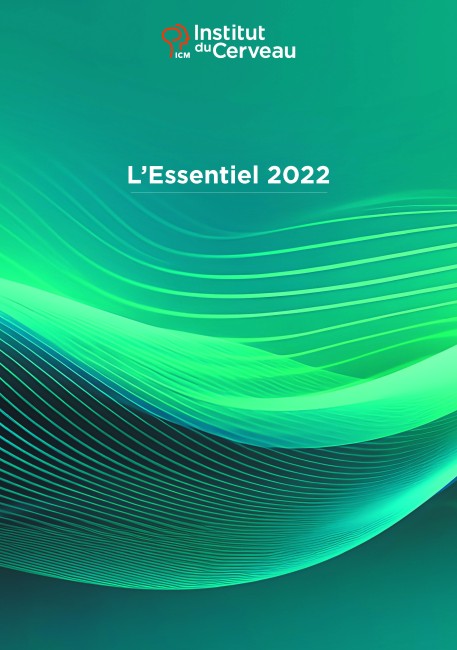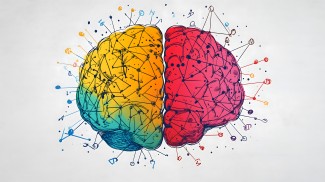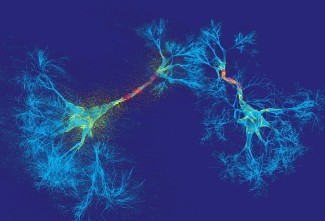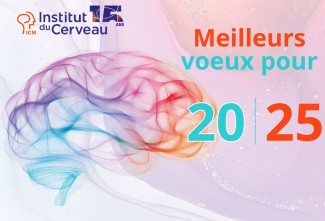Founded in 2010, Paris Brain Institute is a world-class scientific and medical research center dedicated to advancing our understanding of the brain and developing new treatments for neurological disorders. Its unique model unites patients, clinicians, researchers, and entrepreneurs with a common goal: to transform fundamental discoveries into therapeutic solutions through an interdisciplinary and translational approach. Situated at the heart of the Pitié-Salpêtrière Hospital in Paris—the largest neurology center in Europe—the Institute hosts over 1.000 international experts across 29 research teams, supported by 12 state-of-the-art core facilities, a clinical investigation center, a training academy and an innovation center including a start-up studio and a living lab. Paris Brain Institute operates as a joint research unit (CNRS, Inserm, and Sorbonne University) and a private foundation of recognized public utility, the ICM Foundation, in partnership with Assistance Publique–Hôpitaux de Paris.
A private-public partnership
The model applied by Paris Brain Institute is built around a partnership between a public joint research unit made up of three public partners (the CNRS, the Inserm and Sorbonne University) and a private foundation with recognized charitable status, Paris Brain Institute Foundation, working with the Paris Public Hospital Network (AP-HP). This original synergy between the public and private sectors is one of the Institute’s strengths. This enables it to combine the scientific excellence of university researchers, the clinical expertise of healthcare professionals – particularly through its close links with Pitié-Salpêtrière Hospital’s Neuroscience Medical-University Department (DMU) – and the technological and financial resources of private partners. Together, they create a richly productive ecosystem, guaranteeing flexibility and responsiveness.
This strong partnership is governed by a general agreement signed by the five partners, which establishes the Institute’s governance and operating procedures in all areas: research strategy and policy, governance bodies, convergence policy, teams making up the Joint Research Unit (UMR) and the Foundation, internal rules of procedure, resources allocated, shared facilities/platforms and services, development, promotion and exploitation, intellectual property, communication, protection of scientific and technical potential, risk prevention, etc.
A university teaching hospital (Institut Hospitalo-Universitaire, IHU)
The aim of the structure created and developed by Paris Brain Institute is to implement multidisciplinary and multi-scale approaches so as to generate usable knowledge about brain function at all stages of life. Active participation by patients in the innovation process is encouraged. The complete integration of Paris Brain Institute within the hospital, the constant transfers from the patient’s bed to the laboratory, and access to unique patient cohorts are key assets and drivers of innovation.
This multidisciplinary, translational and entrepreneurial model promoted by Paris Brain Institute was awarded the ‘Institut Hospitalo-Universitaire’ (IHU) label as soon as it was created in 2012, along with five other prize-winners selected in the first wave of the program’s call for applications. The label was created by the Ministry of Higher Education and Research and the Ministry of Health, as part of the future investment program, to boost France's attractiveness in the field of medical research. The aim was to provide France with a number of centers of excellence in healthcare research, care, training and technology transfer.
Paris Brain Institute’s main objective, through its IHU program, is to encourage the design and development of innovative drugs or therapeutic solutions for the early diagnosis and treatment of diseases affecting the nervous system.
Paris Brain Institute’s IHU label was renewed in 2017 and testifies to the Institute’s scientific, medical and economic efficiency, recognizing its ability to integrate research, care, training, commercial promotion, and technology transfer at the highest level, in service of patients.
A Carnot Institute
Created in 2006 by the Ministry of Higher Education, Research and Innovation, the Carnot label is awarded to public research bodies that have demonstrated an ability to work effectively with industrial partners. The aim of the Carnot scheme is to develop partnership-based research to encourage technology transfer from the public to the private sector. To achieve this, public research bodies that have been awarded the Carnot Institute label receive additional funding to help them finance actions and projects that will enable them to achieve even greater professionalism in their partnerships with industrial companies.
Paris Brain Institute has been awarded the prestigious ‘Carnot Institute’ label, making it even more attractive to potential industrial partners. Partnership-based research enables the Institute's researchers to develop their research projects that have the potential to move from the laboratory to the patient’s bedside (theoretical to practical), while supporting innovation by industrial enterprises. The Carnot subsidy is helping Paris Brain Institute to finance initiatives that will enable it to maintain its scientific leadership and develop professional partnerships with industry players:
- Development of socio-economic partnerships and industrial partnership agreements: participation in public-private consortia, setting up of a LabCom, the CIFRE (Industrial Agreements for Training through Research) mechanism
collaborating on translational research programs: repositioning or developing drug candidates (Sleeping Beauties), developing pre-clinical (GENOV) and clinical (Neurotrial) phase trials, deploying prototype solutions (Care Lab)
implementing marketing and business development initiatives (Business Development)
accelerating the creation of Biotech and MedTech start-ups (iPEPS)
promoting the design of MedTech and Biotech products by increasing the level of maturity of the results from academic research (Innovation Directorate) - Scientific resourcing initiatives:
international: participation at the international conference of the Society for Neuroscience, running the Neuroscience in France stand to encourage students, post-docs and researchers in the field of neurology to settle in France
maturation: granting of funding for patent applications to increase HDR research qualifications
training: strengthening of the Institute’s expertise by sending staff from the core facilities or research teams to be trained in new techniques developed at other national and international sites, or by inviting international researchers or visiting professors to the Institute so that they can share their expertise and their vision of effective research
Actions to increase professionalism
reinforcing the level of professionalism of the Business Unit and the start-up incubator
ensuring early detection of innovative research results
raising awareness about intellectual property (IP) among researchers
supporting researchers in their patent filing formalities
strengthening industrial partnerships by improving the management of research projects (meeting deadlines, project monitoring)
An economic model
The economic model of Paris Brain Institute is based on a diversity of funding, guaranteeing its independence and sustainability. The Institute benefits from public subsidies, private donations, industrial partnerships and revenues generated by its research and development activities. This balanced financial strategy makes it possible to support high-quality research while ensuring flexibility to respond to emerging scientific and medical challenges. Through rigorous management and strategic vision, Paris Brain Institute continues to grow and innovate, consolidating its position as a leader in neuroscience.
Income statement by origin and destination (CODE) and use account of REC resources)
Products 2023 by origin
The funding of research projects is characterised by a plurality of funding sources with a long-term perspective in order to produce knowledge and major advances in neuroscience.
The revenue amounts to €86.4m and includes €66.9m in revenue for the year and €19.5m in carry-overs of resources allocated and not used in previous years. Proceeds from the financial year correspond to revenue from collections (€31 million, or 46%), which themselves consist of donations (€14.7 million, or 47%), bequests and donations (€7.7 million, or 25%), and patronage (€8.6 million, or 28%).
They also include:
- revenue from the activities of technology platforms (€10 million) and research collaborations with industrial partners (€1.2 million);
- public and private subsidies (€16.6 million);
- financing of the IHU programme (€3.9 million);
- of miscellaneous income (€4.2 million) (rentals, charge rebilling, financial income).
Jobs 2023 by destination
The overall charge totals €83.9 million: €57.7 million used and €26.2 million to be made in the future from the resources allocated. Jobs devoted to social missions amount to €47.8 million, representing 84% of CROD’s total jobs.
The social missions of Paris Brain Institute concern:
- research;
- the creation and operation of cutting-edge technology platforms;
- innovation in health through the promotion of research and the transfer of cutting-edge technologies;
- the transmission and dissemination of knowledge.
Funding for research projects is mainly devoted to diseases of the nervous system and spinal cord injuries. Technology platforms (neuroimaging, vectorology, genotyping sequencing, cell culture, histology and bioinformatics) support these projects.
The costs of fund-raising and communication correspond to the costs incurred in raising funds from individuals (donations and bequests), companies and private foundations (corresponding to patronage and sponsorship actions), as well as communication actions. They represent a total of €5.6 million, or 10% of CROD's total employment.
The operating costs correspond to the costs of the support teams (general secretariat, finance, human resources, legal, IT and logistics) which account for 6% of the CROD’s total posts, i.e. €3.6 million.
Balance sheet as at september 30 2023
| Assets (M€) | 2022 | 2023 |
| Net fixed assets | 60 | 65 |
| Realizable and available assets | 86 | 86 |
| Total | 146 | 151 |
| Liabilities (M€) | 2022 | 2023 |
| Equity | 53 | 49 |
| Fiscal year profit / loss | -2,8 | 2,5 |
| Dedicated funds | 25 | 31 |
| Debt | 42 | 42 |
| Deferred income | 29 | 26 |
| Total | 146 | 151 |








